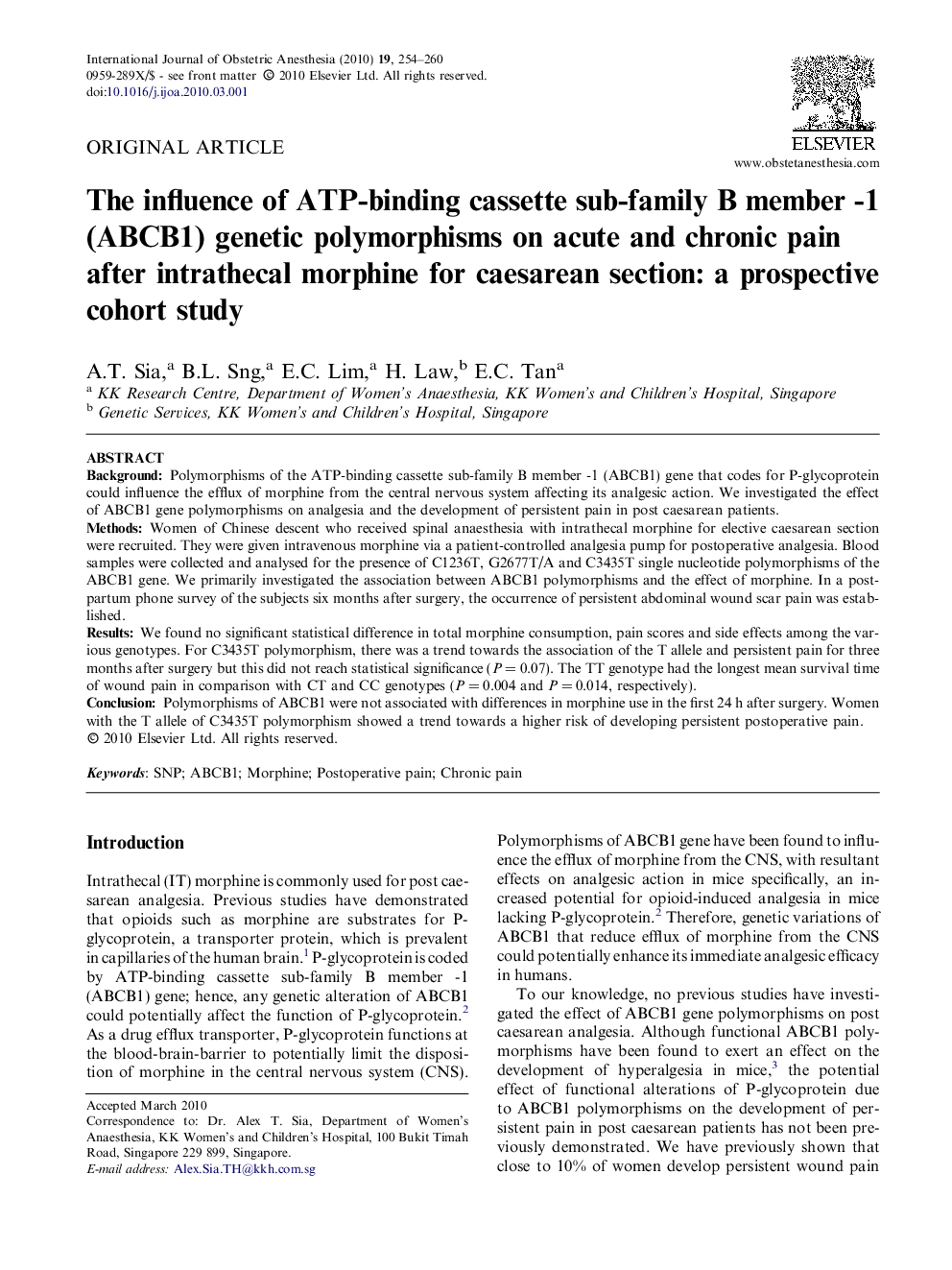| Article ID | Journal | Published Year | Pages | File Type |
|---|---|---|---|---|
| 2758156 | International Journal of Obstetric Anesthesia | 2010 | 7 Pages |
BackgroundPolymorphisms of the ATP-binding cassette sub-family B member -1 (ABCB1) gene that codes for P-glycoprotein could influence the efflux of morphine from the central nervous system affecting its analgesic action. We investigated the effect of ABCB1 gene polymorphisms on analgesia and the development of persistent pain in post caesarean patients.MethodsWomen of Chinese descent who received spinal anaesthesia with intrathecal morphine for elective caesarean section were recruited. They were given intravenous morphine via a patient-controlled analgesia pump for postoperative analgesia. Blood samples were collected and analysed for the presence of C1236T, G2677T/A and C3435T single nucleotide polymorphisms of the ABCB1 gene. We primarily investigated the association between ABCB1 polymorphisms and the effect of morphine. In a postpartum phone survey of the subjects six months after surgery, the occurrence of persistent abdominal wound scar pain was established.ResultsWe found no significant statistical difference in total morphine consumption, pain scores and side effects among the various genotypes. For C3435T polymorphism, there was a trend towards the association of the T allele and persistent pain for three months after surgery but this did not reach statistical significance (P = 0.07). The TT genotype had the longest mean survival time of wound pain in comparison with CT and CC genotypes (P = 0.004 and P = 0.014, respectively).ConclusionPolymorphisms of ABCB1 were not associated with differences in morphine use in the first 24 h after surgery. Women with the T allele of C3435T polymorphism showed a trend towards a higher risk of developing persistent postoperative pain.
